5 Compelling Reasons To Try The 1000 Hours Outside Challenge
This post shares our family’s experience with the 1000 hours outside challenge, 5 key reasons why time in nature is vitally important, and 10 favorite books for further reading on this subject.
We failed. Again.
For the third time in a row, we have tracked our outside hours for the 1000 Hours Outside challenge, and 2024 was our third year of NOT hitting 1000 hours. That’s right: we’ve been doing this for three years and NOT ONCE have we actually made it to 1000 outside hours in a year.
Our first year we made it to 600 hours, the next year was 800, and this year we finished the year at precisely 878 hours spent outside. That’s 122 hours short of the goal, if my math is correct.
So why do we keep doing this? Was it a waste? Should we still do it even if we fall short? There are so many things we could be doing with our (and our children’s) time – is outside time worthy?
Here’s the thing: when you start tracking something or writing it down, it tells your brain that this is something important, and encourages you to do more of it. I noticed this when I started writing down each book I read myself, and again when I spent one month tracking how many picture books I read out loud to the kids.
Tracking the hours we spend outside, then, tells us that this is important, and encourages us to do more of it. Although we have never once hit 1000 hours in a year, we have logged many more hours than we would have done if we weren’t keeping track. We have a little bit of an extra push and motivation to get outside, even on the bad weather days, and that in itself makes the challenge worth it in my eyes.
We may not have hit our “goal” these past three years, but we’ve made countless beautiful memories together in nature.
We may not have gotten to 1000 hours, but we did get in a whole lot of adventures together as a family.
We may not have as many hours as other people do, but we have more than we would have had without the challenge.
The goal of the 1000 hours outside challenge is simple: to get kids outside and in nature, and the beautiful thing about is that whether you end up with 400 hours or 600 or 1000, it’s still good. A year with 500 hours spent outside in nature is a very good year! It’s not a failure on any level. The only ones we’re competing with here are ourselves and our screens.
Here are the five biggest reasons why our family makes it a priority to spend time outside; maybe you’ll resonate with all of these, or maybe you’ll have different reasons! This list is not exhaustive, but it’s a starting point.
And yes, I know just how hard it can be to get outside. It’s often so much easier to just stay in, or just turn on a show, or just wait until the weather is better. However, time and time again we have found outdoor time to be 100% worth the effort, and here is why.
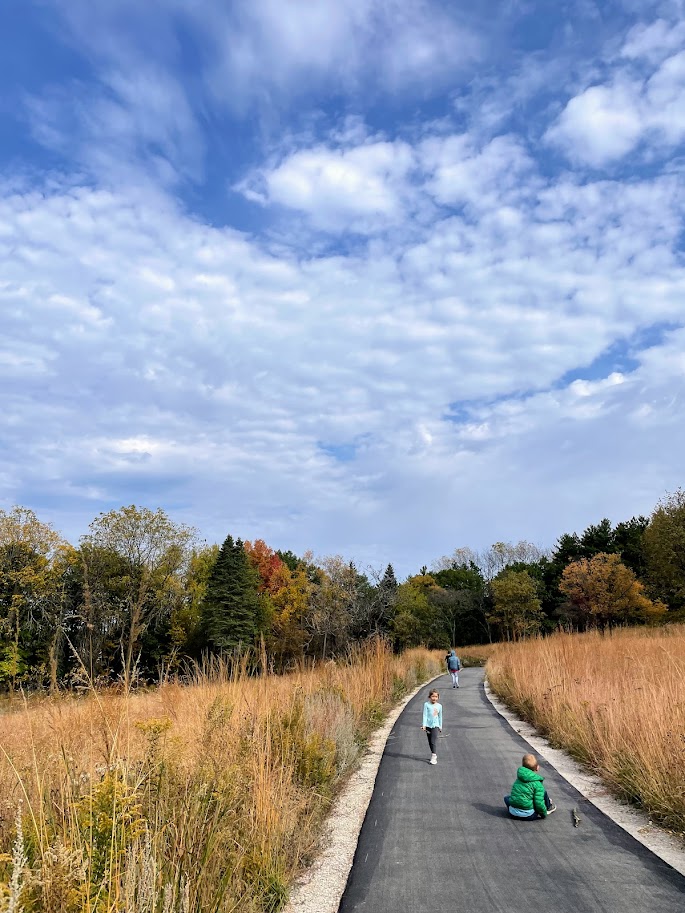
“The healthiest play is outdoors and includes occasional physical risk-taking and thrilling adventures.” ~ Jonathan Haidt, The Anxious Generation
5 Reasons Why It’s Worth Spending Time in Nature
1. It’s good for our physical health. I am not a health expert and this is not a health blog, but there are hundreds of people writing and talking about how fresh air and sunlight are crucial to our health and wellbeing. I’ve read about the importance of morning sunlight, about moving our bodies in various temperatures, and about the complex and varied movements that nature play requires of children in a way that indoor man-made surfaces simply cannot compare!
2. It’s good for our mental health. Time and again, a simple walk in the fresh air calms us, centers us, and refreshes us. I’ve seen crabby attitudes vanish, grumpy faces brighten, and tired bodies wake up just from a short walk around the block. Again, I am not a health expert and I don’t know exactly why this is, but I know it is true. If I go too long in the winter without walking or getting outside I can definitely see a negative affect on my mood and my sleep. We all need that time outside!
3. It forces our kids to become more creative and more resilient. I think of this anytime I see our children playing in the woods or by a stream or anywhere that is free of man-made materials. Without designated “play structures” or specially-made “toys,” children are forced to create their own – and it is astounding what founts of creativity spring forth in these moments.
Suddenly the acorn becomes a car, the dirt becomes a freeway and the twigs become skyscrapers; or, when we are tired of cars, perhaps the acorn will turn into a puppy. Or a baby. Or a chunk of meat to be tossed into a bowl of mud soup. Our child is limited only by his imagination, and it is the perfect catalyst for creative play. Nature is both more challenging and more calming than indoor, man-made play; it offers infinite variety along with a reassuring stability.
4. It brings us together. Often, our time spent outside qualifies as an “adventure” – not in the sense of anything grand or bold, but simply by being a little bit difficult and uncomfortable. The weather is never completely perfect. Someone always falls and scrapes something. We might get tired, or bitten by mosquitoes, or have to pee in the woods, or maybe all of the above.
Experiencing these little difficulties together, coming through them, and then re-telling (perhaps even laughing about) them later creates bonds in our family through this shared experience. In a culture where it’s only too common for children to be separated from their siblings all day at school, and then again after school at their extra-curricular activities, I am a big fan of anything that bring us together as a whole family.
5. It confirms and enlarges our view of God. I recently finished reading the book of Job, and was struck with the fact that when Job doubted his faith and his God, when his life with filled with crushing trials on every side, God’s answer to him was not a lecture on apologetics. God did not answer by giving him a list of doctrines (as important as those may be), or by telling him to just trust the Lord with it.
Instead, God pointed him to nature – and what better display is there of God’s greatness and character? “The heavens declare the glory of God,” and the more time we can spend outside staring up at those heavens, the more we (and our children) will appreciate and reverence the One who created them.
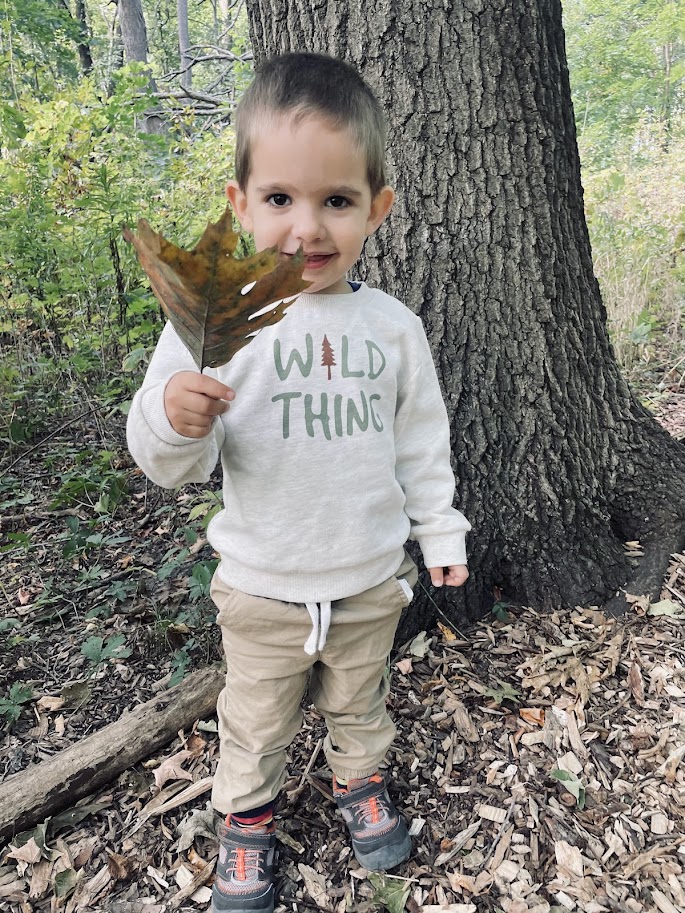
Of course, I hope it is very clear that you can have a happy, healthy, nature-loving family without doing the 1000 hours outside challenge. You don’t have to do it! It’s not a good-parenting-requirement, and we will not be any more holy whether we try it and succeed, try it and “fail,” or don’t try it at all!
It is simply a tool to encourage a behavior that we value, and so we are using and enjoying it as such.
Finally, if you need just a bit more encouragement to get your whole family outside, or if you don’t want to take my word for it (fair enough), here are a handful of excellent books related to that subject. I have read and loved them all, so take your pick and see what these authors have to say!
Books to Encourage You to Spend Time in Nature
- Last Child in the Woods by Richard Louv
- Until the Streetlights Come On by Ginny Yurich
- Balanced and Barefoot by Angela Hanscom
- 1000 Hours Outside: Activities to Match Screen Time with Green Time by Ginny Yurich
- Adventuring Together by Greta Eskridge
- The Anxious Generation by Jonathan Haidt
- The Call of the Wild + Free by Ainsley Arment
- 52 Ways to Walk by Annabel Abbs-Streets
- The Doorstep Mile by Alastair Humphreys
- Outdoor Kids in an Inside World by Steven Rinella
“Let them once get in touch with nature, and a habit is formed which will be a source of delight through life.” ~ Charlotte Mason, Home Education

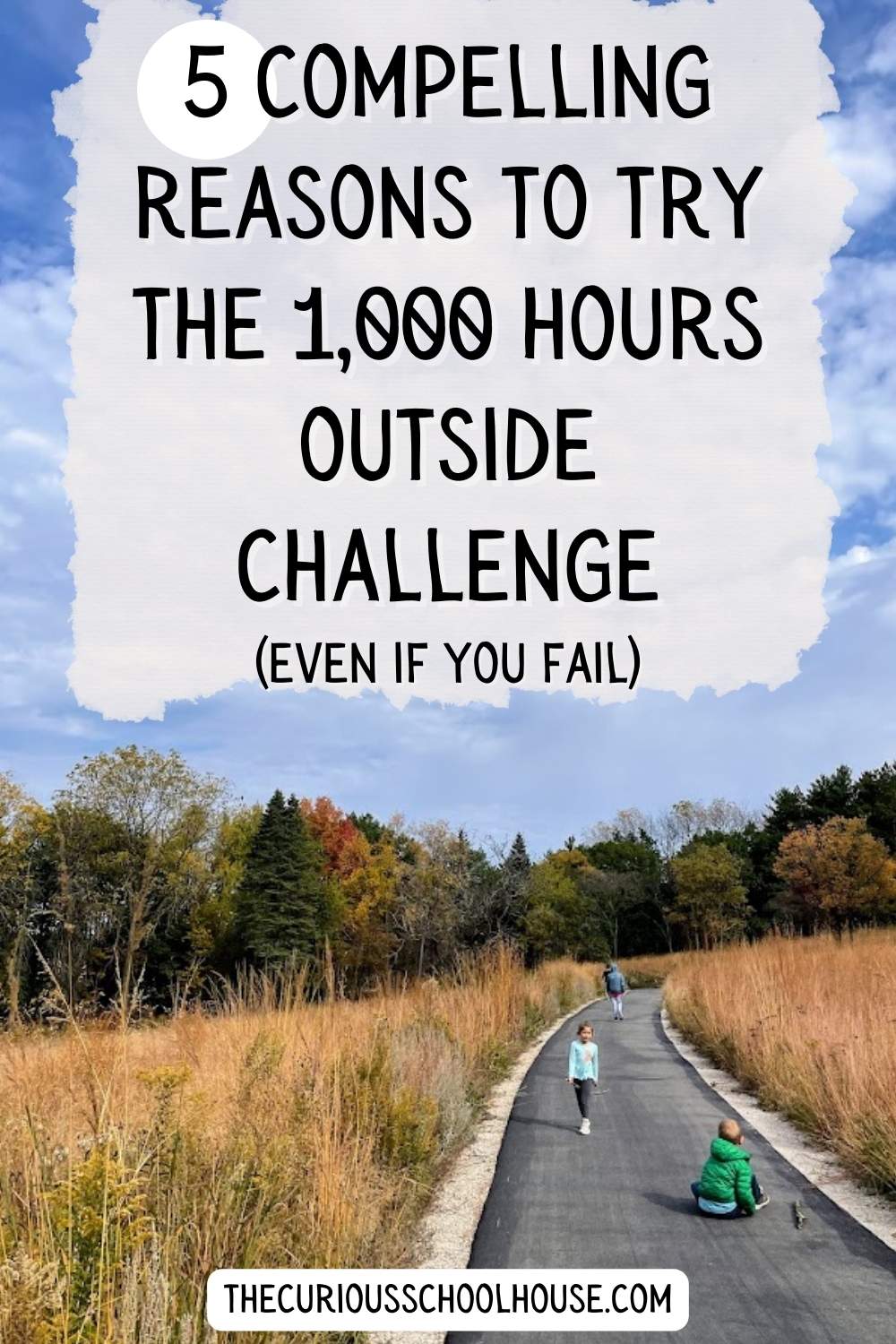

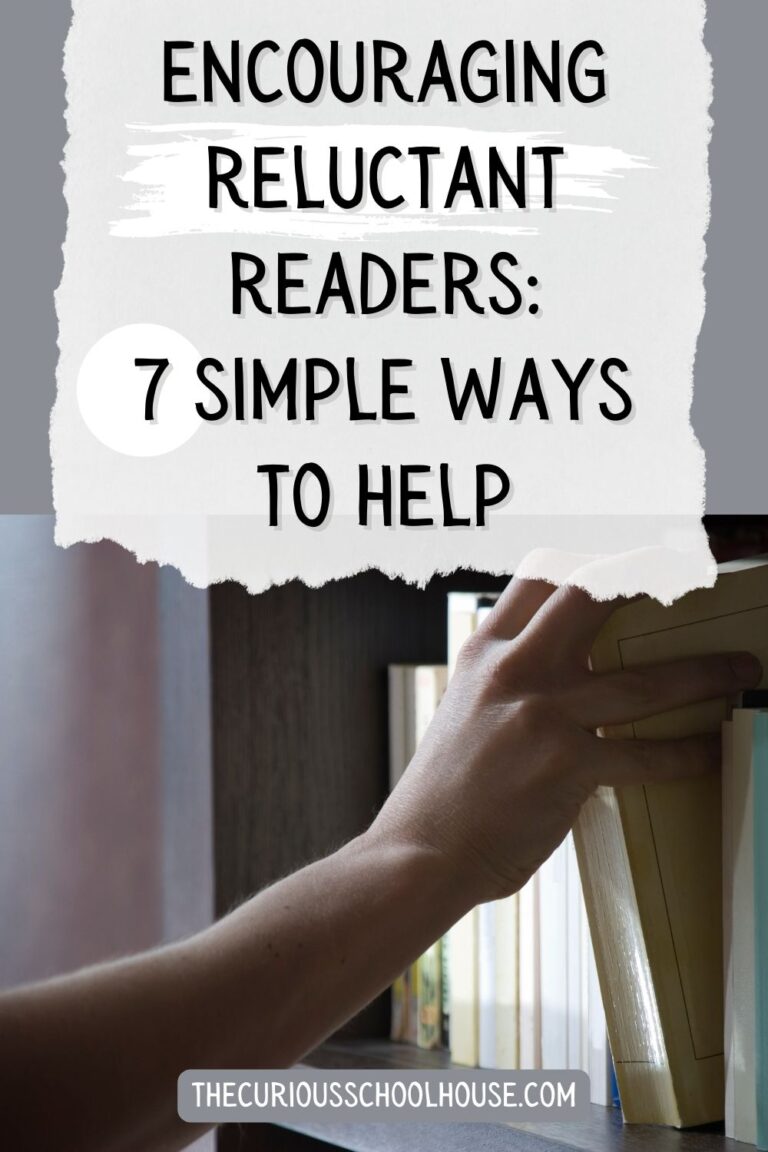


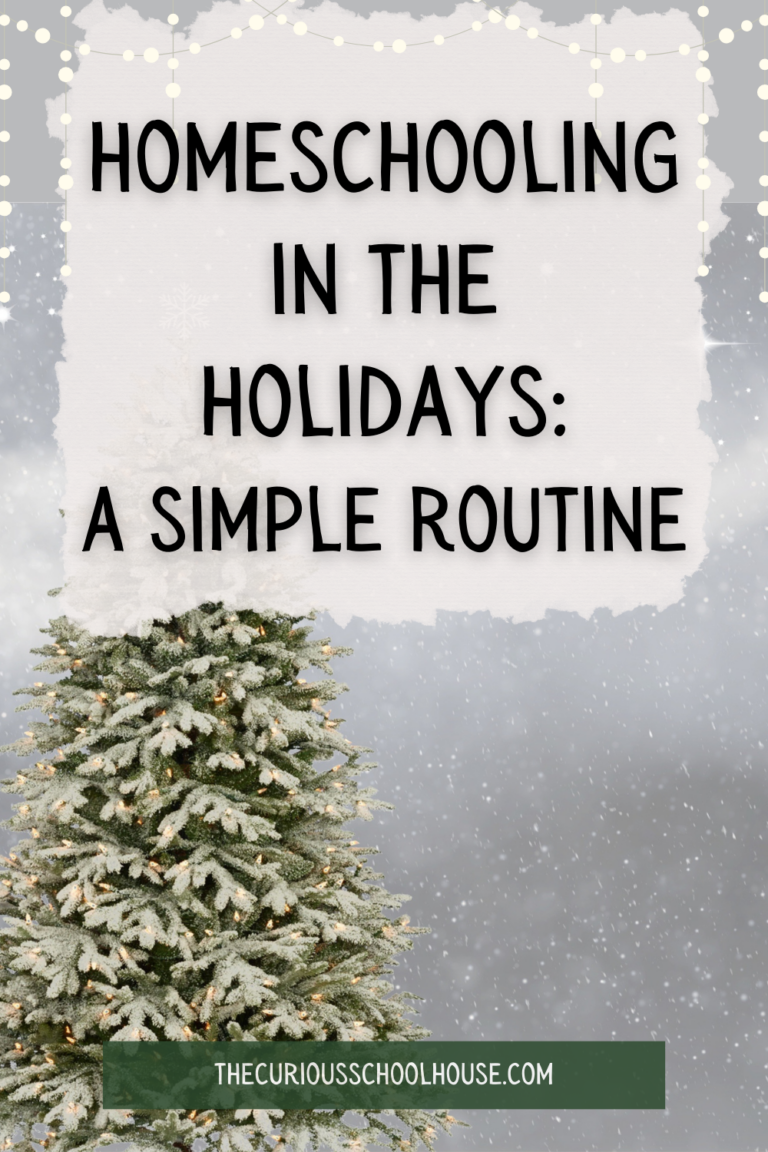
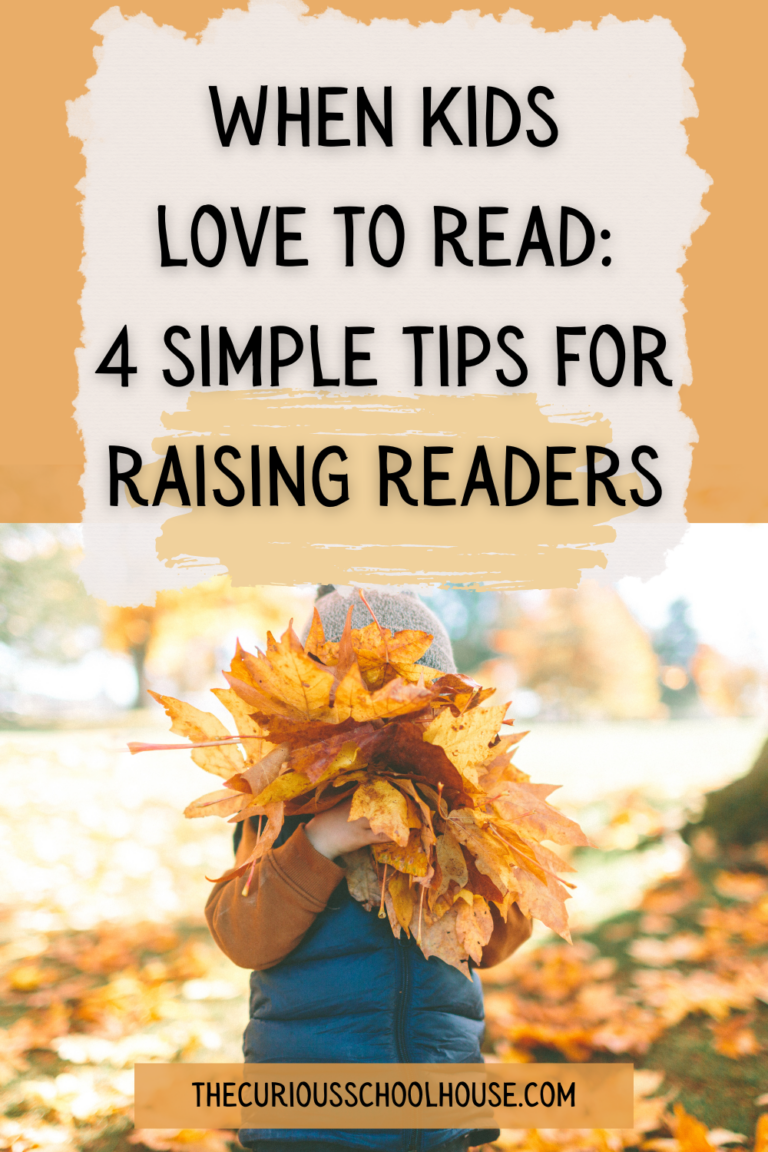
Love this challenge!! Great idea. I’m a few weeks behind for this year, but I might give it a shot.
If you’re in a cold weather climate like us you’re probably not behind at all… we get very few hours in January 🙂